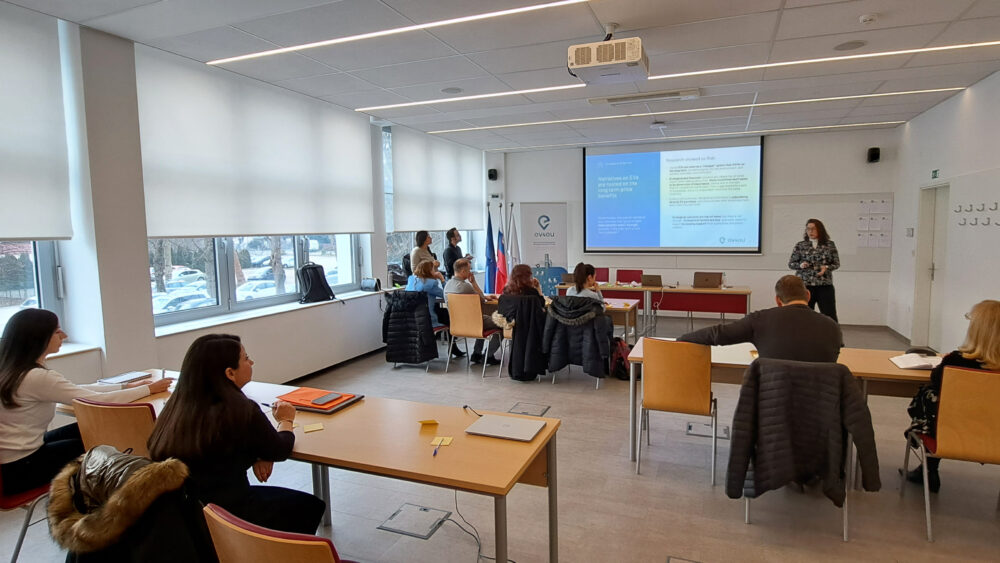The Electric Vehicles Management for carbon neutrality in Europe (EV4EU) project aims to develop management strategies that allow the massification of electric vehicles (EVs). However, the mass deployment of EVs presents several challenges, such as user adoption, among others. EV4EU intends to better understand the needs, behaviors, and concerns of EV users. To this end, EV4EU partner Smart Energy Lab is conducting interviews with key stakeholders and EV users from all participating countries (Slovenia, Denmark, Greece, and Portugal).
Today, Smart Energy Lab held an EV4EU working session at the University of Ljubljana, Faculty of Electrical Engineering (UL), to dive into the current and future EV user experience in Slovenia.
EV4EU partners GEN-I, d.o.o., the University of Ljubljana, Faculty of Electrical Engineering and Smart Energy Lab, together with key drivers of e-mobility in Slovenia, Porsche Slovenia, and the Ministrstvo za infrastrukturo, went deep in the Slovenia reality: the average household has two cars, in which the secondary car is meant for long travels and carrying more luggage, thus consuming more battery. Considering the steep price of EV’s, for mass adoption then ‘one’ EV (all-in-one) must be able to address all commuting needs.
We learned that by 2026 there should be at least one electric charging pool for cars every 60 km along main EU roads. Sónia Sampaio (WP3 leader and Head of Design at Smart Energy LAB) believes that “this will mitigate range anxiety, but the exemption for roads with little traffic will still force people to use fuel, thus have a secondary car, for that family trip off the beaten track. Converting to an all-electric vehicle implies a care-free ride. Should drones or mobile charging stations come to the rescue?”
Stay tunned and follow EV4EU through EV4EU social media channels: LinkedIn, Twitter and Instagram.



Comments are closed.